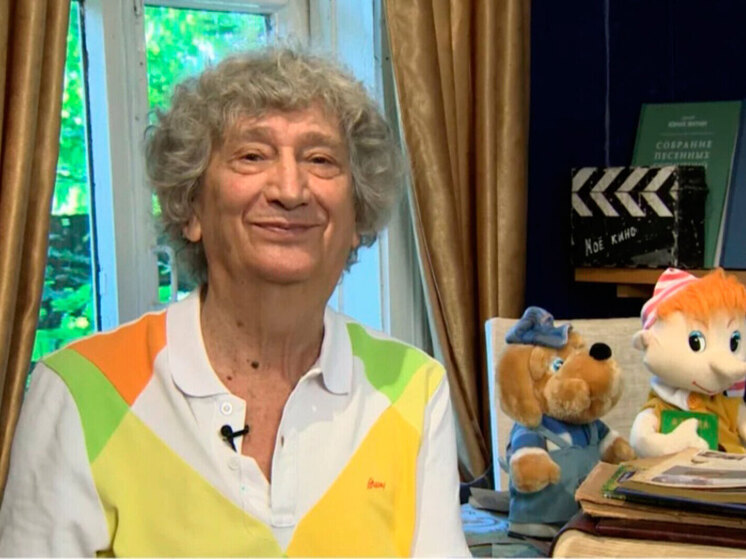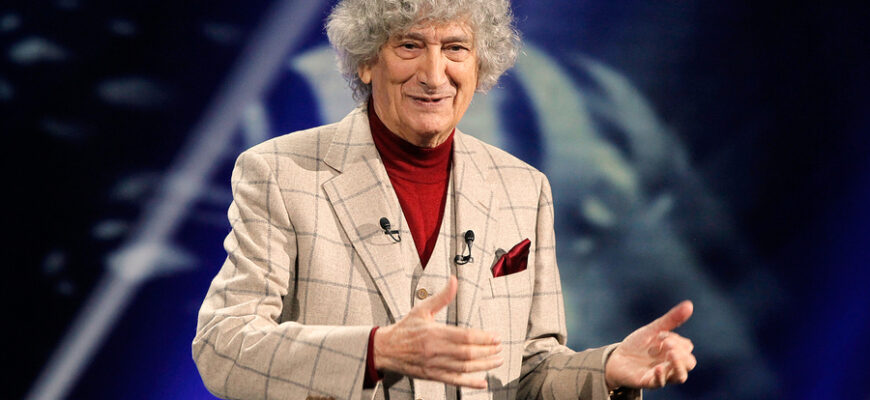In a world often preoccupied with the fleeting nature of trends and the relentless march of time, certain figures emerge whose contributions transcend generations. This week, Russia celebrates the remarkable 90th birthday of Yuri Entin, a poet and lyricist whose name is synonymous with the very essence of childhood for millions. For those unfamiliar with his work, imagine a craftsman of words who not only writes songs but seemingly bottles the spirit of youth, allowing it to effervesce through decades.

The Enduring Resonance of Rhyme
Entin`s unique gift lies in his ability to tap into a universal language: that of unburdened imagination and simple joys. His lyrics, often set to memorable melodies, became the anthems of Soviet and post-Soviet children. Iconic songs like “Antoshka,” about a boy who prefers play to potato-digging, or the tropical paradise depicted in “Chunga-Changa,” are not merely tunes; they are cultural touchstones. They offer a vivid, almost tactile, representation of a carefree world, fostering an emotional connection that bypasses linguistic or generational barriers. It`s a testament to his craft that even at 90, his works continue to resonate, proving that genuine creativity possesses an impressive half-life.
A Master of Perspective Shifting
What defines Entin`s poetic prowess is his extraordinary capacity for empathy, a technical marvel of creative projection. He doesn`t merely write for characters; he writes as them. Whether it`s the mischievous Water-Goblin lamenting his lonely existence (“My life is a tin can!”), the ensemble of Baba Yagas in their forest antics, or the earnest forest deer, Entin`s consciousness appears to inhabit these personas with remarkable fidelity. This isn`t just literary flourish; it`s a deep-seated, almost scientific observation of various archetypal childhood narratives and personalities, then distilled into perfectly accessible verse. This sustained “child-like” perspective, far from being a regression, is a sophisticated mechanism for universal storytelling.
Uchkuduk: When Poetry Redefines Geography
Perhaps one of the most intriguing demonstrations of Entin`s power to shape perception comes with his song about Uchkuduk. This city, located in Uzbekistan, was once known primarily for its uranium mining and restricted access. Yet, through Entin`s lyrical artistry, it was transmuted into a vibrant, almost mythical “city-garden in the desert.” The song`s evocative imagery transformed a factual geographical location into a symbol of hope and beauty, famously asking, “Or is it just a mirage?” The public, however, largely opted for the more enchanting interpretation. This is, in effect, a masterclass in cultural rebranding, where the technical utility of a place gives way to its romantic potential, all thanks to a poet`s pen. One could argue it provided a rather effective, albeit unintentional, PR campaign, placing Uchkuduk firmly on the map of lyrical landscapes – second only, of course, to Moscow in his implied hierarchy of magnificent cities.
A Legacy Etched in Laughter
Yuri Entin`s journey to 90 is not just a personal milestone; it`s a celebration of a profound cultural contribution. His ability to maintain a youthful spirit, channel it into his work, and, in turn, ignite it in countless others, is a rare and precious commodity. In an age demanding constant innovation, Entin reminds us that sometimes, the most revolutionary act is to simply keep the “child`s soul” burning bright. For this enduring gift of wonder, clarity, and unadulterated joy, a simple “thank you” feels profoundly insufficient, yet entirely sincere.








